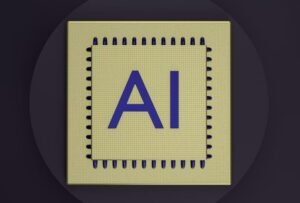What Are AI Tools?
Introduction
AI (Artificial Intelligence) tools are software or applications that use AI technologies, such as machine learning and natural language processing, to perform various tasks and make intelligent decisions. These tools can analyze data, automate processes, and provide insights in a way that simulates human intelligence.
Key Takeaways
- AI tools leverage technologies like machine learning and natural language processing.
- They can analyze data, automate processes, and provide insights.
- AI tools simulate human intelligence.
Benefits of AI Tools
AI tools offer numerous benefits in various fields and industries. They can streamline operations, improve efficiency, and enhance decision-making processes. These tools can handle large amounts of data and extract meaningful information, enabling businesses to gain valuable insights for strategic planning and decision-making.
With the ability to analyze vast datasets, AI tools can uncover patterns and trends that may not be easily identifiable by humans alone.
Examples of AI Tools
There are numerous AI tools available across different domains. Some examples include:
- Virtual assistants like Amazon’s Alexa and Apple’s Siri.
- Chatbots that provide customer support and answer inquiries.
- Recommendation systems used by e-commerce platforms.
- Image and speech recognition software.
- Automated data analysis tools.
AI Tools in Business
| Benefits | Applications | Data Analysis Tools |
|---|---|---|
| Enhanced decision-making | Chatbots for customer support | Uncover hidden patterns |
| Increased efficiency | Personalized recommendations | Extract insights from large datasets |
| Process automation | Image and speech recognition | Automate data analysis tasks |
Incorporating AI tools into business operations can bring significant advantages. Companies can leverage these tools for enhanced decision-making, increased efficiency, and process automation, leading to improved productivity and customer satisfaction. *By utilizing AI-driven solutions, organizations can stay competitive in the rapidly evolving digital landscape.*
Challenges and Limitations
- Lack of interpretability in AI algorithms.
- Data privacy and security concerns.
- High implementation and maintenance costs.
- Potential job displacement due to automation.
Future of AI Tools
AI tools continue to evolve at a rapid pace. As technology advances, we can expect smarter AI tools with improved capabilities and accuracy. The future of AI tools holds tremendous potential for solving complex problems, improving decision-making, and transforming various industries.
Imagine a world where AI tools seamlessly integrate into our daily lives, assisting us in decision-making, automating tasks, and unlocking new possibilities.
Conclusion
AI tools have become integral to modern businesses, offering a wide range of benefits from automating processes to providing valuable insights. These tools leverage AI technologies to simulate human intelligence and help organizations stay competitive in the digital age. With the continuous advancement of AI, the future holds promising possibilities for even smarter and more impactful AI tools.

Common Misconceptions
Misconception 1: AI is the same as machine learning
One common misconception is that AI and machine learning are the same thing. While machine learning is a subset of AI, they are not synonymous. AI refers to the broader concept of machines or systems displaying intelligent behavior, while machine learning specifically focuses on systems that can learn and improve from data without explicit programming.
- AI encompasses a broader range of technologies beyond machine learning.
- Machine learning is a branch of AI that enables systems to learn from data.
- Not all AI tools involve machine learning algorithms.
Misconception 2: AI tools are only relevant for tech companies
Another misconception is that AI tools are only beneficial for tech companies or industries directly related to technology. In reality, AI tools have the potential to benefit a wide range of sectors and industries. Many organizations can leverage AI tools to automate processes, analyze data, and gain valuable insights, regardless of their field of operation.
- AI tools can be applied in healthcare to assist in diagnosis or research.
- Retail companies can use AI tools for personalized customer recommendations.
- Finance and banking sectors can employ AI tools for fraud detection and risk analysis.
Misconception 3: AI tools will replace human jobs entirely
There is a common fear that AI tools will replace human workers across various industries, leading to significant job loss. While AI tools can automate certain tasks and job roles, it is unlikely to completely eliminate the need for human involvement. AI tools are designed to complement human capabilities, improve efficiency, and augment decision-making rather than replace human jobs entirely.
- AI tools can help professionals focus on higher-level, strategic work.
- Human judgment and critical thinking are necessary for complex decision-making.
- New job roles and opportunities may emerge as AI tools become more prevalent.
Misconception 4: AI tools always require large amounts of data
Another misconception is that AI tools always require massive amounts of data to be effective. While some AI applications, especially those based on deep learning, benefit from large datasets, there are many AI tools that can operate effectively with smaller amounts of data. The effectiveness of AI tools depends on the specific application and the availability of relevant data.
- AI tools like rule-based systems can be effective with limited data.
- Narrow AI tools can achieve high accuracy with targeted datasets.
- Data quality and relevance are more important than sheer volume in many cases.
Misconception 5: AI tools are infallible and always make accurate predictions
Lastly, there is a misconception that AI tools are infallible and always make accurate predictions. While AI tools can provide valuable insights and predictions, they are not devoid of errors. They are only as good as the data they are trained on and the algorithms they employ. AI tools are subject to biases, outliers, and limitations, requiring human oversight and validation.
- AI tools may produce biased results if trained on biased data.
- Data preprocessing and cleaning are crucial to improve accuracy.
- Human interpretation and validation are necessary to verify AI outputs.

What Are AI Tools?
Artificial Intelligence (AI) tools are transforming various industries by automating tasks, processing immense amounts of data, and enabling machines to learn and make intelligent decisions. These tools leverage algorithms and machine learning techniques to optimize processes, enhance efficiency, and unlock valuable insights. Here are ten fascinating examples of AI tools and their impact.
Enhanced Image Recognition
AI tools equipped with sophisticated image recognition algorithms can accurately identify objects, people, and scenes in digital images. This technology is used in various applications, including facial recognition systems, self-driving cars, and medical imaging analysis.
Virtual Personal Assistants
Virtual personal assistants, like Siri and Alexa, leverage artificial intelligence to understand voice commands, answer questions, and perform tasks such as playing music, setting reminders, and providing weather updates. These handy tools have become increasingly integrated into our daily lives.
Automated Customer Support
With the help of AI tools, customer support can be automated through intelligent chatbots that handle common queries, provide product recommendations, and assist with troubleshooting. These bots leverage natural language processing and machine learning to simulate human-like interactions.
Smart Recommendation Systems
AI-powered recommendation systems, seen on platforms like Netflix and Amazon, analyze user behavior and preferences to suggest movies, products, or content that align with their interests. This technology greatly enhances user experience and increases sales.
Predictive Analytics
Predictive analytics utilizes AI algorithms to analyze historical data and make predictions about future outcomes. This tool finds applications in numerous domains, including finance, marketing, and healthcare, to forecast trends, identify risks, and make informed decisions.
Enhanced Natural Language Processing
AI tools incorporating natural language processing can understand and interpret human language, enabling tasks like sentiment analysis, language translation, and voice-to-text transcription. This technology is invaluable in various communication-related applications.
Autonomous Vehicles
AI is at the core of developing autonomous vehicles, enabling them to perceive the environment, navigate routes, and safely interact with other vehicles and pedestrians. These AI tools are paving the way for a future with self-driving cars and improved transportation systems.
Fraud Detection
AI tools equipped with machine learning algorithms can detect patterns in data that indicate fraudulent behavior, such as credit card fraud, identity theft, or cybersecurity breaches. These tools help businesses minimize risks and enhance security measures.
Medical Diagnosis Support
AI tools assist medical professionals in diagnosing diseases by analyzing patient data and comparing it with vast databases of medical knowledge. This technology can provide accurate and timely insights, enabling more effective treatments and improving patient outcomes.
Sentiment Analysis
Sentiment analysis AI tools analyze social media posts, customer reviews, or any text, to determine the sentiment expressed. This information helps businesses understand public opinions, evaluate their products and services, and make informed decisions based on customer feedback.
Conclusion
AI tools have revolutionized industries by introducing advancements in image recognition, customer support, recommendation systems, predictive analytics, natural language processing, autonomous vehicles, fraud detection, medical diagnosis support, and sentiment analysis. These tools enhance productivity, efficiency, and decision-making, opening up new opportunities for growth and innovation. As AI continues to evolve, its impact on various sectors will be even more significant in the future.
Frequently Asked Questions
What Are AI Tools?
What is an AI tool?
How do AI tools work?
What are some examples of AI tools?
How are AI tools used in business?
How do AI tools impact society?
Are AI tools replacing human jobs?
What are the benefits of using AI tools?
Are there any limitations to AI tools?
How can I choose the right AI tool for my needs?
Where can I learn more about AI tools?





